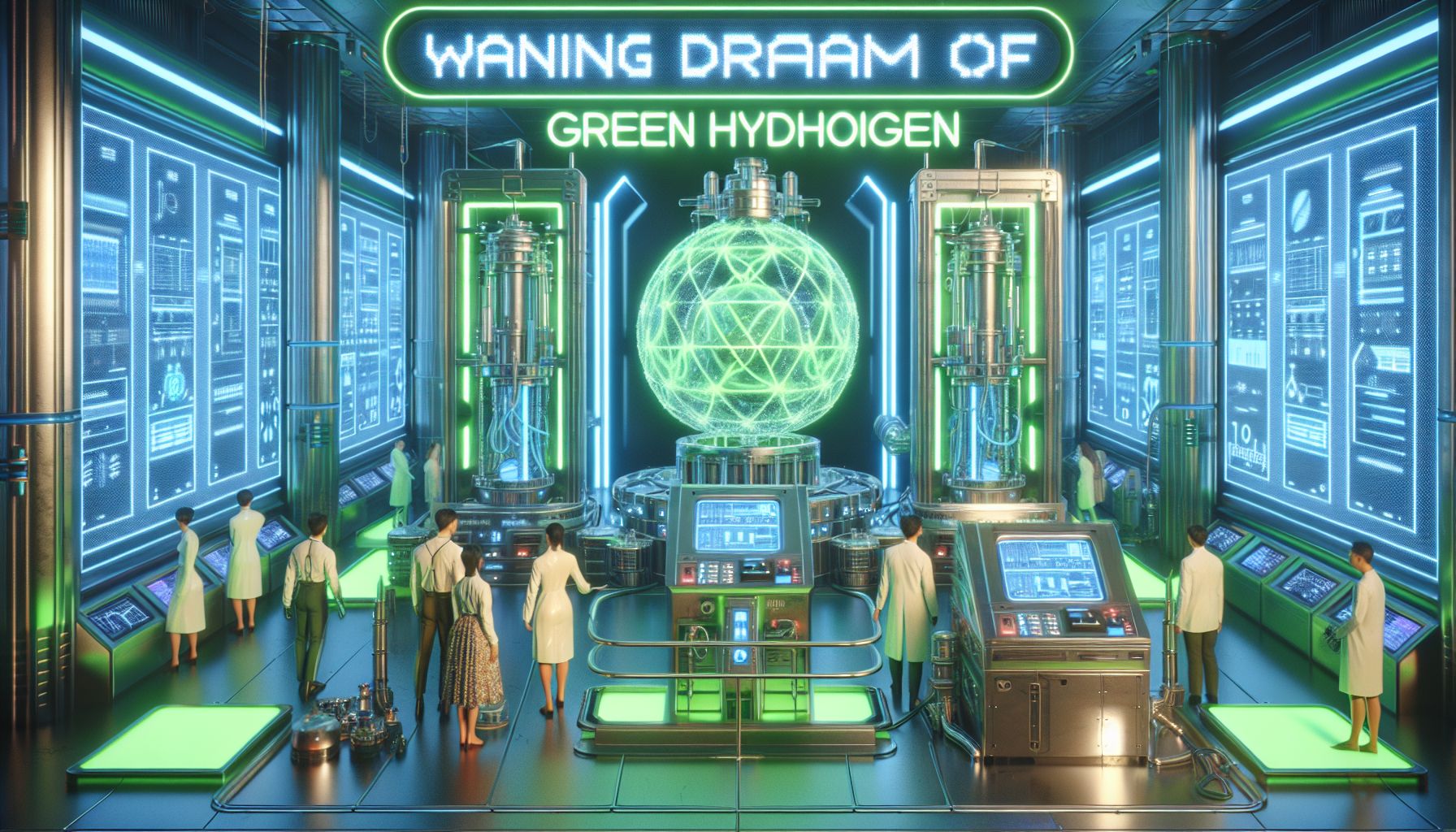The Waning Dream of Green Hydrogen: Why It's Not the Solution We Hoped

Singapore, Monday, 14 April 2025.
Experts reveal green hydrogen as a less viable energy solution than hoped, urging us to rethink investments. Economics and technology fall short, as calls rise to find alternative paths to sustainable energy.
Green Hydrogen’s Glamorous Illusion Fades
Imagine a stage where the actors, backed by the grand illusion of green hydrogen, have taken a bow. For years, this technology was hailed as a beacon of hope for clean energy. Yet, it turns out that this was more a performance than solid engineering. Experts like Michael Barnard suggest that the story wasn’t about hydrogen’s efficacy but rather about actors who believed in the narrative. BP has quietly dissolved its hydrogen units, while Airbus has shelved its hydrogen aircraft plans, demonstrating a shift in priorities [1].
Economic Hurdles and Shifting Narratives
Green hydrogen’s hurdles are both technological and economic. A detailed study indicates that even with a 78% cost reduction through blended interventions, competitive parity with natural gas remains elusive until potentially the mid-2030s, dependent on high natural gas prices [2]. Despite advances in technology, the cost remains a significant barrier, and market interventions have so far only offered partial relief.
Global Shifts and Strategic Reconsiderations
Globally, the sun is setting on some ambitious hydrogen projects. For instance, in the United States, hydrogen hubs are undergoing rigorous reevaluation [3]. Europe is seeing a stronger argument for battery-electric alternatives over hydrogen-fueled options[4]. Meanwhile, Australia, despite its initial zeal, is facing high generation costs that delay its hydrogen export dreams [5]. These shifts indicate a realignment towards more viable energy solutions in light of practical limitations.
Opportunities and Niche Applications
Don’t write green hydrogen off completely. While not the panacea for energy woes, it carves a niche in industrial feedstocks. This realm suits its nature better than the grand vision of powering vehicles and homes. Industrial use has always shown more promise. Supply industries are likely to consider hydrogen as a replacement for fossil fuels in steel and heavy manufacturing [6].
Industry Perspectives and Future Directions
Business leaders and scientists such as Michael Liebreich and Joe Romm have been voicing skepticism over hydrogen as an energy source for years [1]. Their points about belief over practicality resonate today as the world diversifies its sustainable technologies. With countries like China ramping up investments, demonstrating financial optimism in targeted green hydrogen applications, there’s a lesson in focusing on where impact can be maximized without the hype.
Conclusion: A Pragmatic Way Forward
As we rethink our energy future, let’s steer clear of placing all our eggs in one metaphorical hydrogen basket. While hydrogen isn’t the saviour we imagined, let’s appreciate its place in the complex puzzle of global energy strategy [7]. Our focus now shifts towards sustainable methods that offer broader and more immediate impacts, paring down grandiose expectations in favour of pragmatic solutions.
Bronnen
- www.linkedin.com
- www.sciencedirect.com
- energynews.pro
- energynews.biz
- spectra.mhi.com
- bioenergytimes.com
- sg.linkedin.com